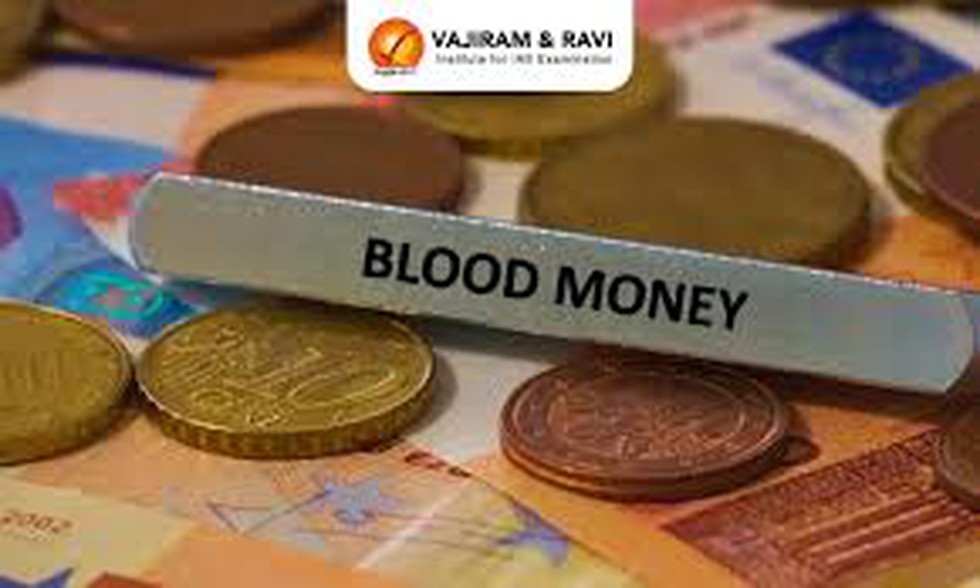About Blood Money:
- Under the Islamic Sharia law, blood money, or 'diya', means that the accused provides financial compensation to the family of the victim in serious crimes such as murder.
- It is followed in countries that incorporate these laws in their legislation.
- The custom is practised predominantly in cases involving unintentional murder and culpable homicide.
- It is also invoked in murder cases wherein the victim’s kin choose not to retaliate through ‘qisas’ (a way of retribution under the Sharia).
- The end-goal, as the law says, is not to put a price tag on human life but to alleviate the plight and suffering of the affected family and their potential loss of income.
- However, it is to be noted that even if the concerned parties reconcile through ‘blood money’, the community and the state will retain the right to impose a deterrent punishment, including penalties.
- In its contemporary applications, ‘blood money’ is upheld in several Islamic countries with factors such as gender, religion, and nationality of the victim coming into play.
- In Saudi Arabia, for instance, the traffic regulations specifically mandate payment of ‘blood money’ to heirs of the victims who die in road accident In addition, the perpetrator shall be liable to a prison term.
- The system of blood money leaves the fate of the offender in the hands of the victim's family.
- The Sharia law does not state a fixed amount for 'diya'. However, it can be negotiated by the victim's family.
What’s India’s stand on ‘diya’?
- Provisions for the grant or receiving of ‘blood money’ do not find a place in India’s formal legal system.
- However, the system does provide a way for the accused to negotiate with the prosecution through ‘plea bargaining’.
- Though the concept cannot be directly equated with ‘blood money’, the scheme lays out a procedure whereby the defendant agrees to plead guilty for a particular offence perpetrated by the accused in return for a concession from the prosecutor.
- Introduced through the Criminal Law (Amendment) Act, 2005, plea bargaining comes with an array of limitations, unlike ‘blood money’, which has a broader purview.
- For instance, plea bargaining can be taken up only for offences that are penalised with imprisonment of less than seven years.
- It cannot be invoked if the accused has been previously convicted for a similar offence.
- Besides, the provision is not available for crimes against women or children aged below 14; heinous crimes such as murder or rape; and offences involving socio-economic conditions, including civil rights.
- Moreover, the accused has to voluntarily come forward to plead guilty, and must not be coerced.
- However, on the lines of ‘blood money’, plea bargaining may also allow for the victim to receive compensation.
